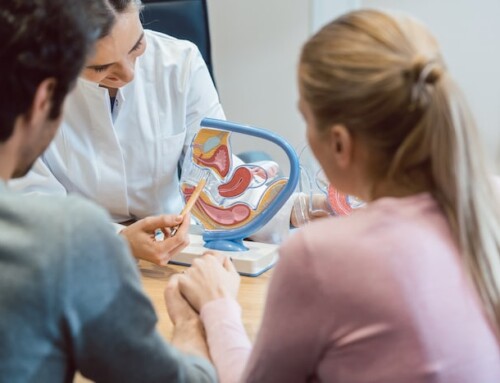Our modern lifestyle is definitely hurried and stress-induced. Statistics show that more than 500,000 people have work-related stress, in the UK alone, resulting in illness. Although the adverse effects of stress are more or less well-known to (or experienced by) almost everybody, new scientific evidence backs up the widely held belief that stress and infertility are also closely connected.
According to a newly published study, women are less likely to conceive when they are experiencing stressful conditions. This is because stress increases the production of an enzyme known as alpha-amylase, which is associated with increased risk of infertility. Researchers from the University of Oxford and NIH (National Institutes of Health) followed more than 250 couples that were trying to conceive for up to 6 menstrual cycles. It should be noted that all the women (aged 18-40) tracked their cycles every month using fertility kits and none of them had a history of infertility. Women with higher alpha-amylase levels (tested on their 6th cycle day every month) were 12% less likely to conceive than women with lower alpha-amylase levels.
What happens inside a woman’s body when she is stressed ?
The pituitary gland, an organ on the lower side of the brain the size of a chickpea, sends two different types of hormones to the ovaries through the bloodstream that will first cause the egg to mature and then trigger ovulation. When a woman is under a lot of stress, other hormones, such as cortisol, are also released in the brain and block this procedure. This can affect the regularity of a woman’s cycle (so planning to get pregnant becomes a challenge) or even stop ovulation altogether. It makes common sense that if a woman’s body hasn’t released an egg that is waiting to be fertilised, no amount of sperm can make any difference.
Stress and Semen Quality
Stress does not only slow the egg’s passage but also lowers the quality of the semen. Research has revealed that men who experience life and work stress have lower percentages of both normal-morphology sperm and sperm motility than men not going through a stressful life event. Also, the American Society for Reproductive Medicine has some interesting facts to share, too. It seems that the findings mentioned before are not dependent on the age, history of fertility issues or other health problems that influence semen quality.
Combining those two issues (the slowing of the passage of the fertilised egg to the uterus and the reduction of sperm quality), one can understand that getting pregnant is turned into a struggle when under a lot of stress.
Ways to cope with stress and increase your chances to conceive
Trying to reduce your stress levels and relax is critical to having another baby or starting a family. Although it is without a doubt much easier said than done, couples can adopt personalised strategies to help deal with whatever is causing them stress. Meditation, exercising, yoga, proper diet and having some fun, me-time will help turn to healthy lifestyle habits and increase your emotional well-being and overall health. Do you think it is by chance that everybody knows someone that has announced a pregnancy while on vacation!
Team Miracle at Cyprus IVF Centre understand the importance of relaxation and positive mental health when couples are undergoing an IVF cycle. The Team Miracle patient coordinators are on hand at all times to answer any questions that arise and they will put you at ease whilst you are having IVF in Cyprus. Having IVF abroad, whilst you are enjoying a peaceful holiday in the sun, is surely the best way to minimise stress and anxiety and maximise the chance of pregnancy.






